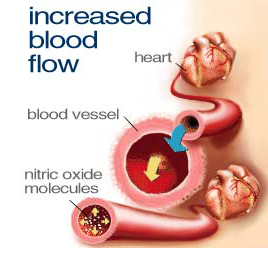“Take 15 minutes of Beatles in the morning and a half hour of Mozart at bedtime.” Could this become a genuine doctor’s prescription in years to come? The idea is not too far-fetched: a growing amount of evidence shows that listening to music not only affects our moods – able to relax us or stimulate us, depending on the type of music – but actually produces measurable changes in physiological processes.
Music’s ability to lower blood pressure, for example, has long been recognized. But the effects were assumed to be due to relaxation alone and thus only temporary. Recent research, however, proves it’s these assumptions that are short-lived. An important study from the University of Florence in Italy found that listening to relaxing music for 30 minutes a day led to significant drops in blood pressure throughout the day after four weeks. These results show the effects of listening to music to be cumulative and long lasting, not temporary.
It now appears that lower blood pressure may be just the tip of an iceberg representing a whole range of benefits to be gained from listening to music. In December 2008, researchers at the Center for Preventive Cardiology at Maryland University published findings showing that listening to music also lowers LDL, the so-called bad cholesterol.
Music’s reducing effects on both blood pressure and cholesterol are produced by its ability to relax and expand blood vessels. The diameter of blood vessels in the upper arms of the Maryland subjects expanded by an average of 26% after listening to music they enjoyed. The resulting improvement in blood flow not only has the obvious effect of reducing blood pressure but also helps prevent the buildup of clots and harmful cholesterol.

In addition to simple mental and physical relaxation, this beneficial dilation of blood vessels indicates that listening to music releases a powerful substance into the bloodstream: nitric oxide. Nitric oxide is a gas produced by our cells that not only helps to regulate blood flow and blood chemistry but also aids the immune system in fighting infection and tumors and is an important neurotransmitter in the brain.
Another therapeutic practice implicated in the production of nitric oxide is slow breathing, with which music can be combined to even greater effect. Participants in the Italian study practiced slow, controlled breathing while listening to music. This type of breathing – often mistakenly referred to as “exercise” – is deeply relaxing but, again, the less obvious but more powerful element at work may be an invisible gas.
Nitric oxide is a potent substance deeply involved in cardiac health and other crucial physiological processes. For these reasons, it is the object of wide-ranging research by scientists and pharmaceutical companies. But natural practices like listening to music and slow breathing that stimulate the production of nitric oxide along with mental and physical relaxation may show even greater promise. Michael Miller, the director of the music study at Maryland University states, “We were looking for cheaper, non-pharmacological aids to help us improve our patients’ heart health, and we think this is the prescription.”
Discover more about music and slow breathing for lower blood pressure and cholesterol, stress relief and much more.